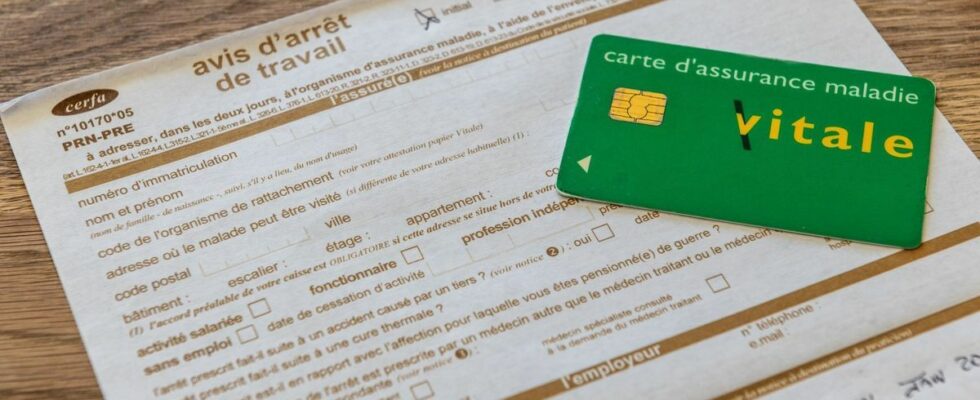Published on
updated on
Reading 3 min.
in collaboration with
Frédéric Villeneuve (General Practitioner)
To combat abuses in terms of sick leave, the Health Insurance is implementing various measures. The aim is to save billions to replenish the State budget.
The announcement was made last July: Health Insurance is implementing new forms starting this month Cerfato combat sick leave fraud. A measure that will continue until June 2025. There are others, with a view to saving the State money, here are which ones.
Forms with multiple authentication points
According to the latest report from the National Health Insurance Fund (CNAM), “7.9 million euros of financial losses from fraud were detected and stopped in 2023 due to the presentation of false work stoppages and/or false salary certificates“.
To continue this momentum and limit the use of false documents by fraudsters, the new work stoppage forms will be secured by seven authentication points.I’m not going to show you all the secrets, but there are a number of developments, such as this hologram or these colors” presented Thomas Fatôme, director of the Cnam, during a press conference.
The Cnam plans to deploy them definitively in less than a year, the old forms will therefore be “rejected by health insurance organizations” from June 2025. To further limit the risks, it will no longer be possible to send a scan or photocopy of the document and electronic transmissions, via amelipro or secure software, will be preferred.
When questioned, Frédéric Villeneuve, general practitioner and president of FMF-Gé (the FMF general practitioners) was surprised by Thomas Fatôme’s comments.How can we claim that 30% of sick leave is unjustified when the reason for 50% of these sick leave remains unknown according to a recent report by the Court of Auditors? This statement, without solid foundation, stigmatizes both patients and doctors. As general practitioners, we are the first witnesses of the realities on the ground: our patients are not trying to circumvent the system, they are often in a situation of fragility or vulnerability. Repressive measures or targeting actions will only aggravate mistrust in the health system and do not address the real causes of this increase..
An increase in fraud of “one billion euros in 2024”
If the Cnam is implementing all these changes, it is to combat fraud and abuse, justifies Thomas Fatôme, who believes that “to progress by more than one billion euros in 2024”to possibly “exceed 17 billion” by the end of the year.
Health Insurance therefore wishes to address its policyholders by contacting in particular those “on sick leave for more than 18 months“which represents 30,000 to 40,000 people, for”check whether the stoppage is still justified or whether it is possible to adapt it with, for example, therapeutic part-time work or an organized return to work”.
“The risk of a policy focused solely on reducing work stoppages is to penalize the most vulnerable: those suffering from chronic illnesses, precarious workers, and older people in employment, who are the first to be affected by these prolonged stoppages.” recalls Dr. Villeneuve.
People who have had “at least two stops of less than two weeks“over a period of six months (except pregnant women, the chronically ill, etc.) will also receive a letter for their”remind them of the rules and offer them support“. From there to saying that the sick become suspect…
Bring all the players around the table… or under surveillance
Finally, businesses, just like doctors, are not left out. The “7,000 general practitioners who have fairly high prescription levels” will also be contacted by the Cnam, with a view to “not controls but a fraternal exchange with a medical advisor, to understand and see if they can contribute to better control of expenditure” further detailed its director. Proposals which have not yet caused the professional unions to react.
Finally, visits to a thousand companies with a profile of “very high absenteeism“will be organized, to check if they do not create “the conditions” for these work stoppages or accidents. The objective being, according to Thomas Fatôme, to “bring all the stakeholders around the table to conduct a more general reflection on the system, and make it fairer, more equitable, more readable, more sustainable.”
For Dr. Villeneuve, “Rather than targeting doctors, it is essential to implement a global strategy that includes disease prevention, improving working conditions, and increased support for patients on long-term sick leave. Simplistic solutions such as extending waiting periods or reducing the rate of coverage by health insurance risk increasing inequalities and further weakening those insured, particularly those in the most precarious situations.”.
